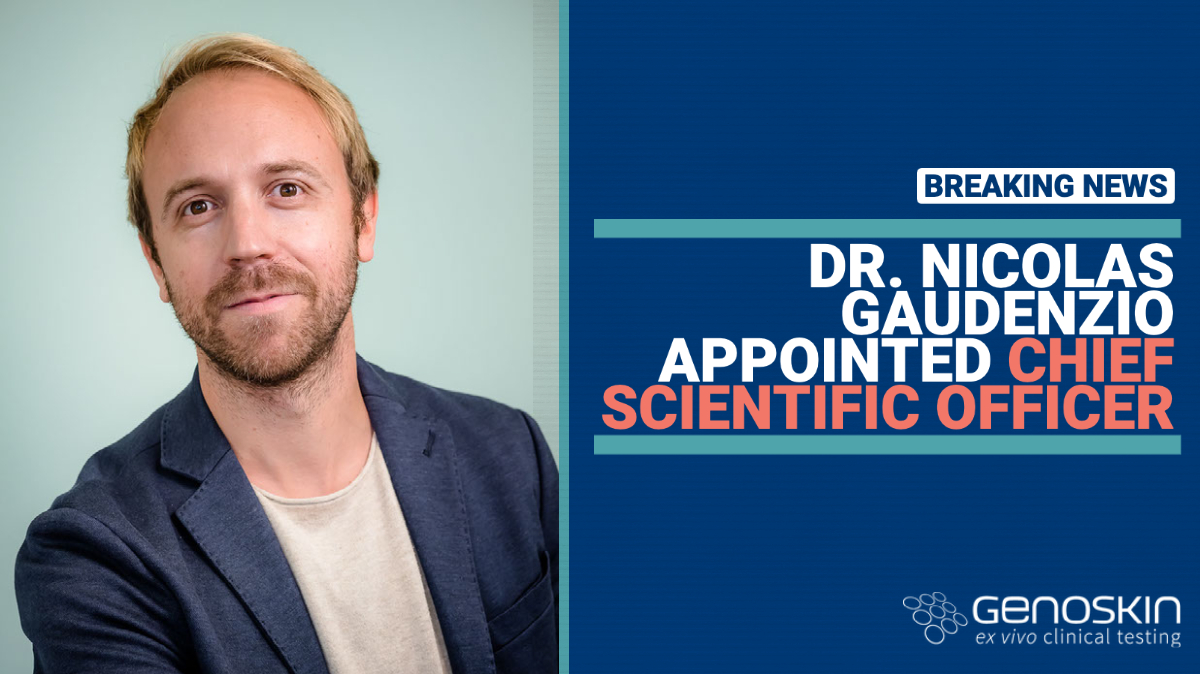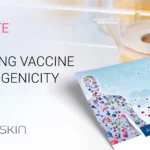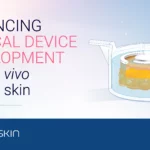Genoskin appoints Dr Nicolas Gaudenzio as Chief Scientific Officer
Today, November 8, Genoskin announces the appointment of Dr. Nicolas Gaudenzio as Chief Scientific Officer (CSO), starting in November.
Dr. Gaudenzio will lead Genoskin’s shift towards new activities
Dr. Gaudenzio is a world-renowned researcher and expert in immunology and allergic skin inflammation. He is also principal investigator and leader of a research group at the Infinity Institute (Toulouse Institute for Infectious and Inflammatory Diseases, France), which focuses on the neuronal regulation of immune response. Nicolas will structure and lead Genoskin’s existing R&D team into immunology and data-oriented innovations, supporting the development of new offers and establishing the company’s long-term scientific strategy. Dr. Gaudenzio has worked with Genoskin as a senior consultant since the end of 2019.
A world-renowned scientist at the head of Genoskin R&D department
Dr. Gaudenzio completed his Ph.D. in 2012 at the University of Toulouse, France, and holds a doctorate in immunology. Following his post-doctorate in the Department of Pathology at Stanford University (CA, USA), he now heads an Inserm cross-disciplinary research group, which was awarded a Starting Grant from the European Research Council (ERC) in 2018. His work has contributed substantially to identifying molecular and cellular targets involved in allergic and non-allergic inflammation and to the development of new imaging methods to probe neuro-immune interactions in preclinical models and in skin samples from patients. His current research work in these fields will contribute to the further comprehension of the role of structural, neuronal and immune cells in the development of skin inflammation and pain, which should help identify new therapeutic options to modulate and prevent disease development. In 2021, Dr. Gaudenzio received the prestigious ACTERIA Early Career Research Prize in Allergology awarded every two years by the European Federation of Immunological Societies (EFIS).
Comments are closed.





